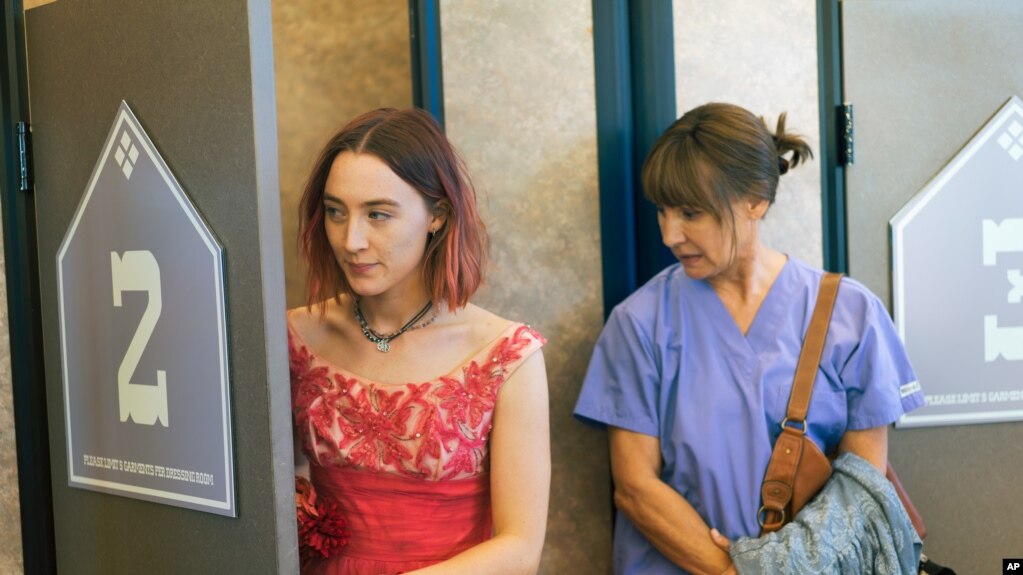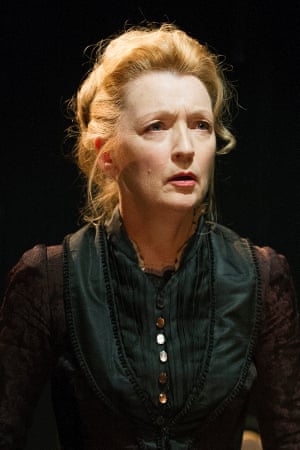Joe gives Greta Gerwig's directorial debut 4 stars
Lady Bird is a slight but admirably delicate film. That it allowed me time to reflect while I watched it suggests that I was less than fully engaged. On the other hand, my reflections were all in its favour. It occurred to me that films about teenagers breaking free from parental restraints are not often so even-handedly compassionate, and convent schools are rarely allowed to appear so benign.
 Though she has a
track record of directorial collaborations, this is the first film Greta Gerwig
has directed by herself. And it’s a film in which a Gerwig-like role, somewhat
reminiscent of Frances in Frances Ha,
for example, is played by a younger actor, Saoirse Ronan. I was reminded of another
comic auteur, Woody Allen, and it strikes me that the comparison is entirely in
Gerwig’s favour.
Though she has a
track record of directorial collaborations, this is the first film Greta Gerwig
has directed by herself. And it’s a film in which a Gerwig-like role, somewhat
reminiscent of Frances in Frances Ha,
for example, is played by a younger actor, Saoirse Ronan. I was reminded of another
comic auteur, Woody Allen, and it strikes me that the comparison is entirely in
Gerwig’s favour. Though there are lines in this film that made me laugh out loud (which for some reason I don't often do in the cinema), emotional truth is never sacrificed for a gag. And whereas Allen clung on as juvenile lead for too long and later managed to induce talented actors, such as John Cusack and Kenneth Branagh, to become Allen-impersonators so that he could go on haunting his own films, Gerwig has allowed Ronan to make this part very much her own.

The heart of the story is the relationship between Christine McPherson (Ronan), who wishes to be known as Lady Bird, and her mother Marion (Laurie Metcalf) who veers between tolerating and resisting her daughter’s whimsical posturing. Christine’s father Larry (Tracy Letts) is warm and emotionally present but struggles to provide for the family and has settled into a more passive role. It’s left to Marion to do the worrying and to berate her daughter when she seems to fall short of her potential. As a mother, Marion has obvious faults. Building self-esteem is not a priority. In one stand-off she asks Christine, in exasperation, if she has any idea how much it costs to keep her. Christine picks up a pen and file pad and demands to know exactly how much, challenging her mother to put a figure on it, so that she’ll later be able to write her a cheque after which they won’t have to see each other ever again. Marion’s response, that Christine will never be able to earn that kind of money, is a characteristic put-down.
 But the mutual
frustration expressed at such moments is the flip side of a powerful bond. The
scene in which Marion helps Christine buy a dress from a charity shop for the
school prom is moving because it’s multi-layered. Alongside her mother’s
clumsiness, we see Christine’s emotional dependence, her openness to advice, for all her stubbornness, and the extent to which her quirky style is an accommodation with the financial
reality. Both these parts are wonderfully acted.
But the mutual
frustration expressed at such moments is the flip side of a powerful bond. The
scene in which Marion helps Christine buy a dress from a charity shop for the
school prom is moving because it’s multi-layered. Alongside her mother’s
clumsiness, we see Christine’s emotional dependence, her openness to advice, for all her stubbornness, and the extent to which her quirky style is an accommodation with the financial
reality. Both these parts are wonderfully acted.
The plot, such as
it is, concerns Christine’s ambition to leave California and take the more
expensive and academically challenging option of a college in New York, a city
she has never visited. Meanwhile she must navigate the social complexities of
high school life. Her relationships with boyfriends are only averagely
disastrous and the mean girls only moderately mean. As for her teachers, I wish
I had encountered nuns as gentle as these. And yet I experienced all this
moderation as a positive quality, allowing space for the film to explore
Christine’s real struggle, which is to find some distance from her mother
without alienating her, and to shape a more stable sense of identity.

